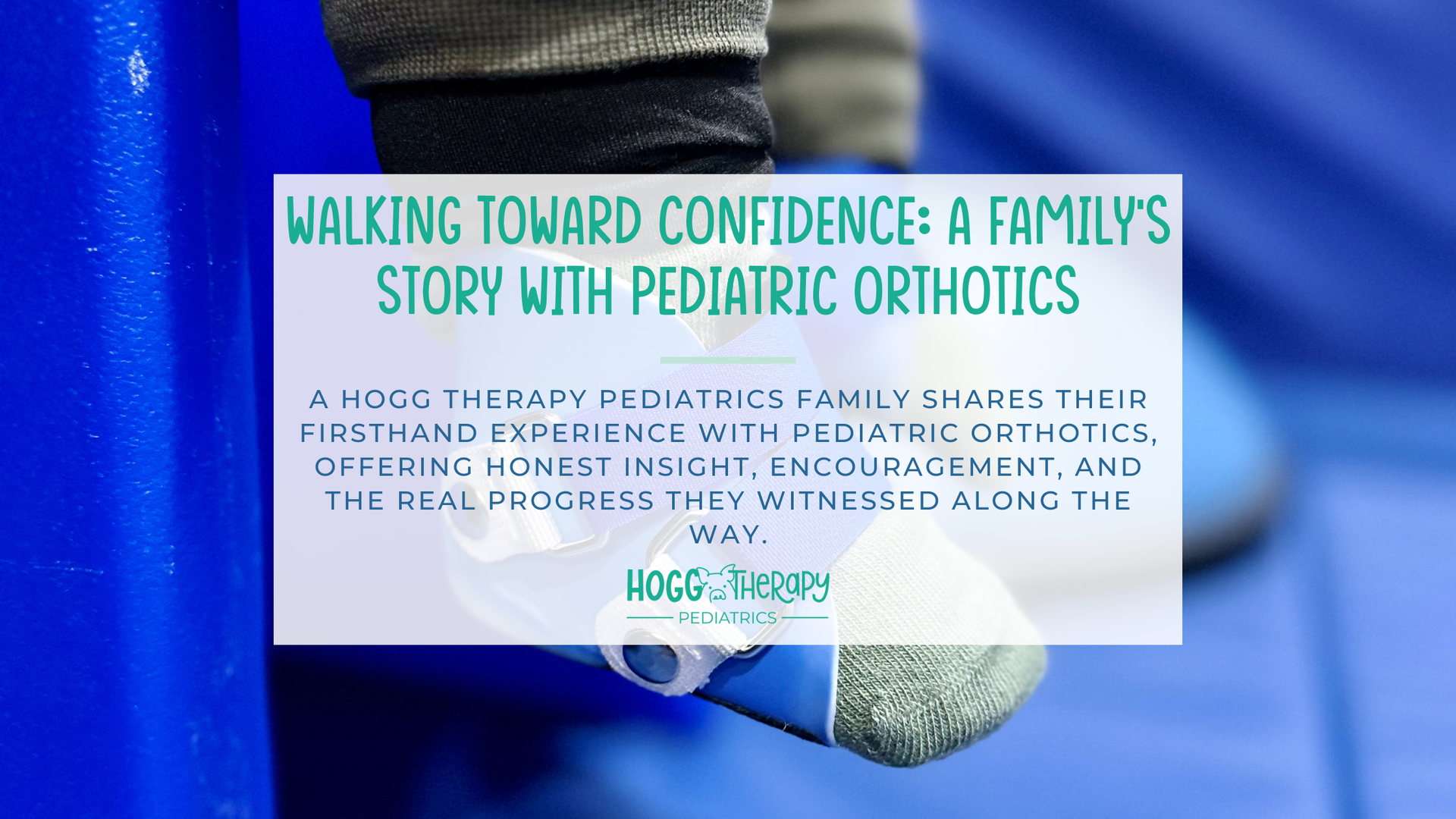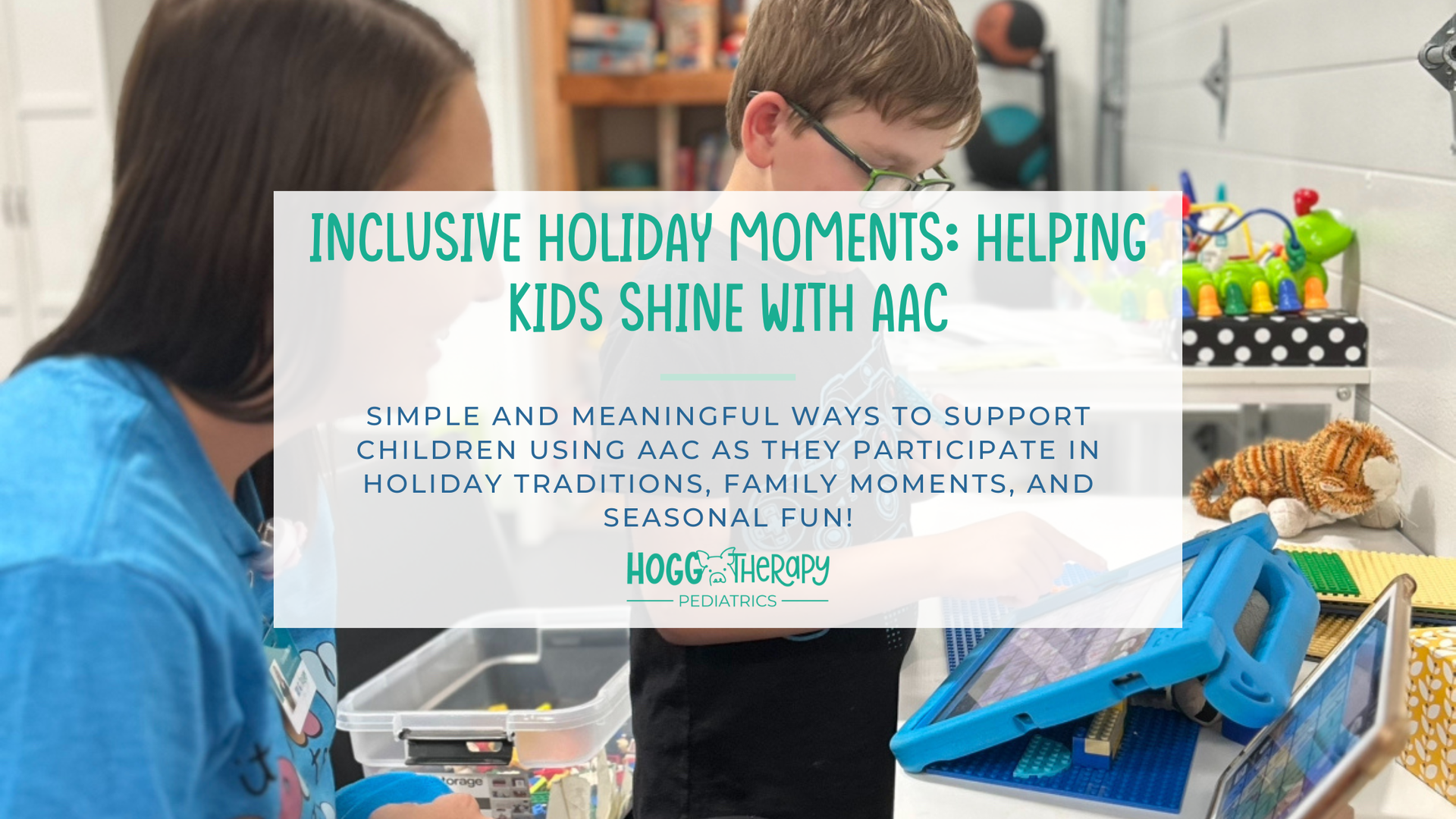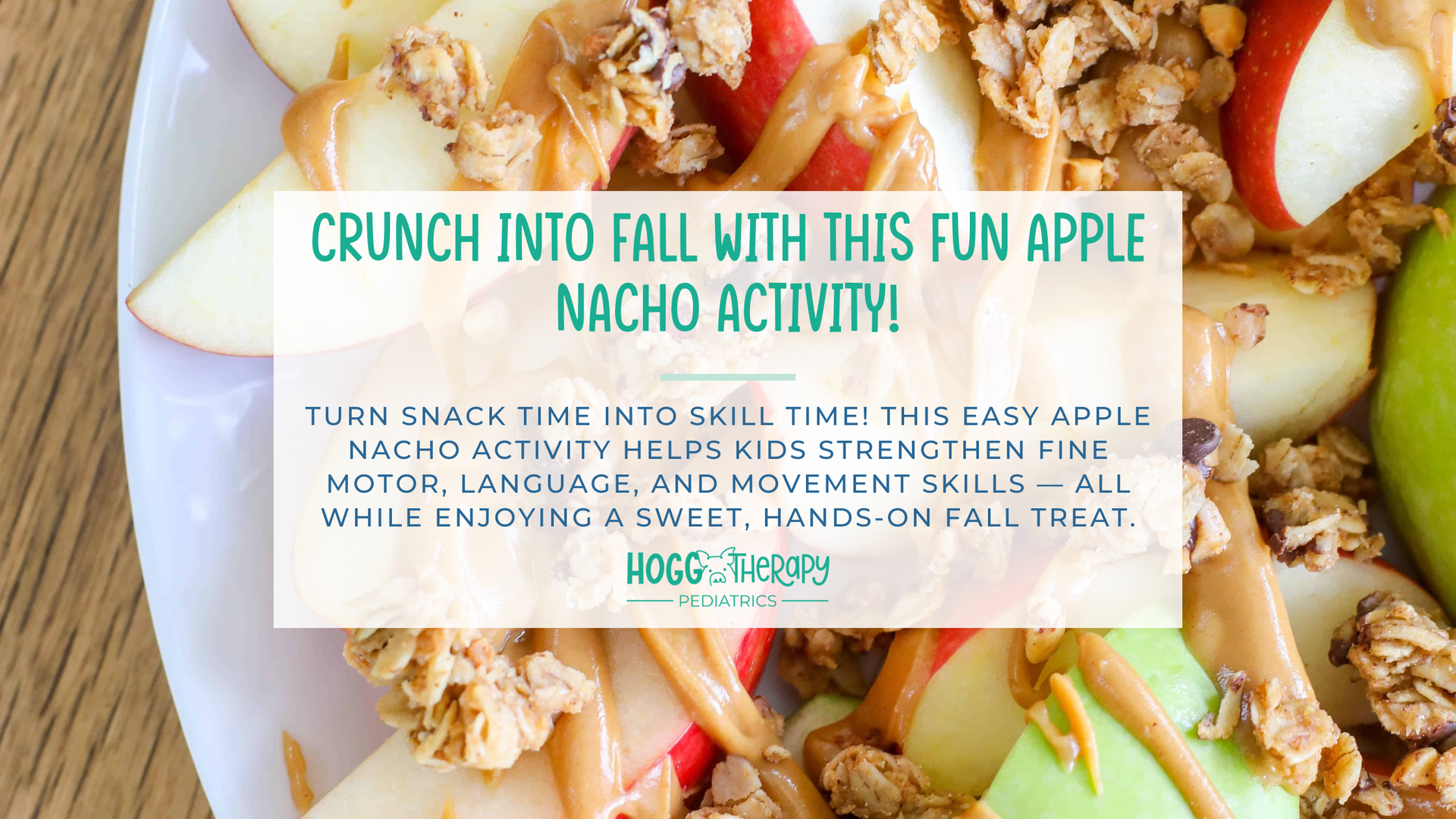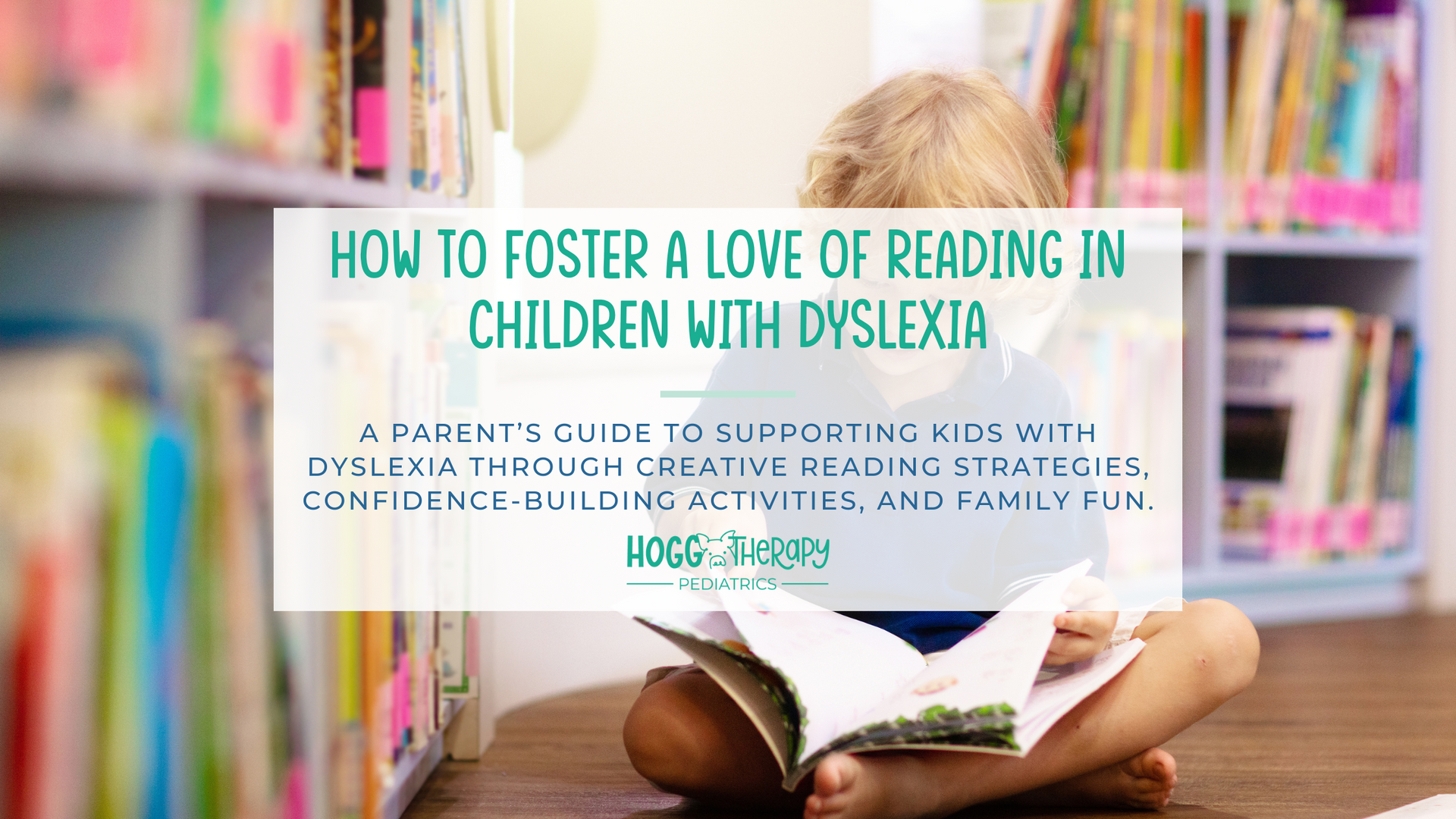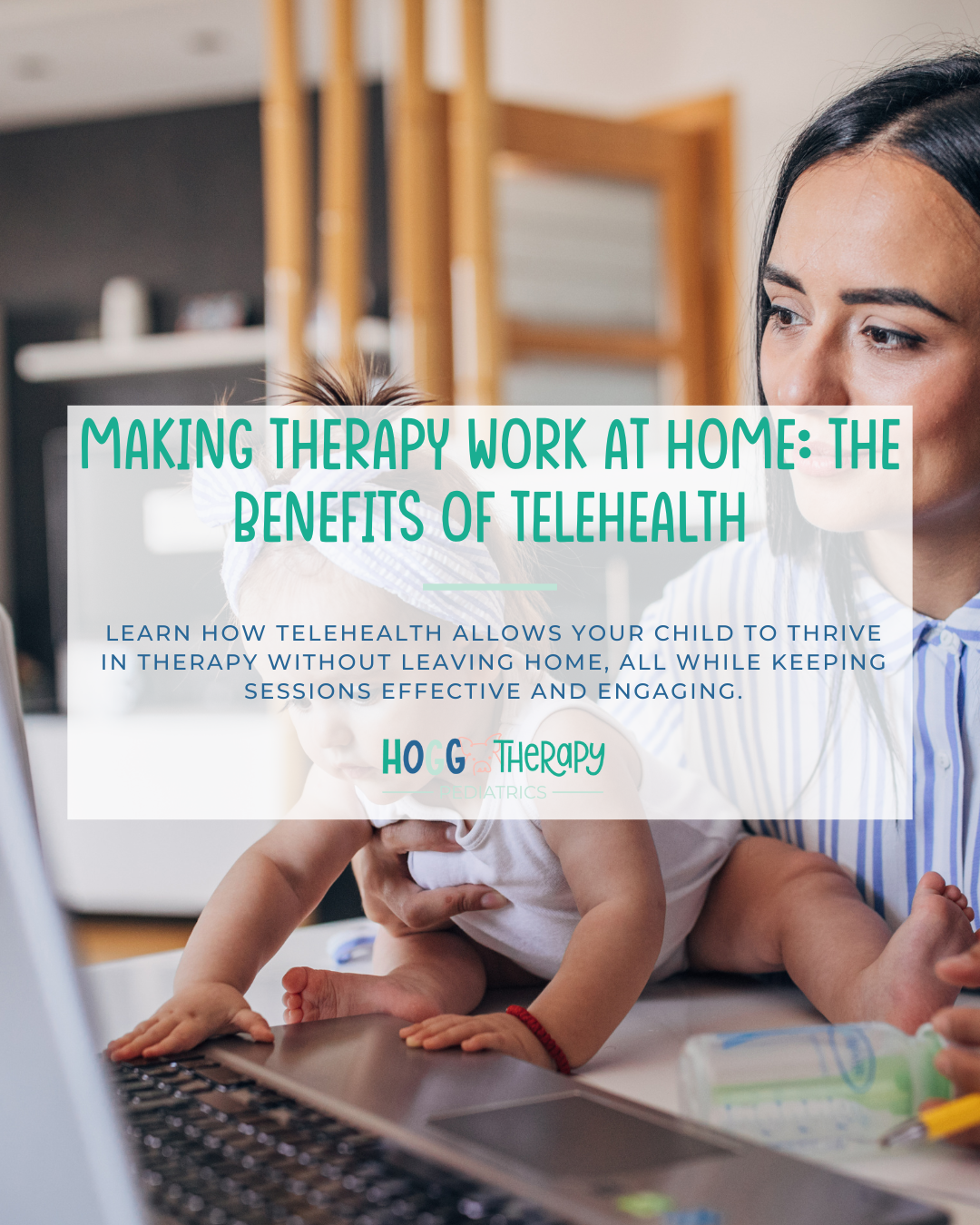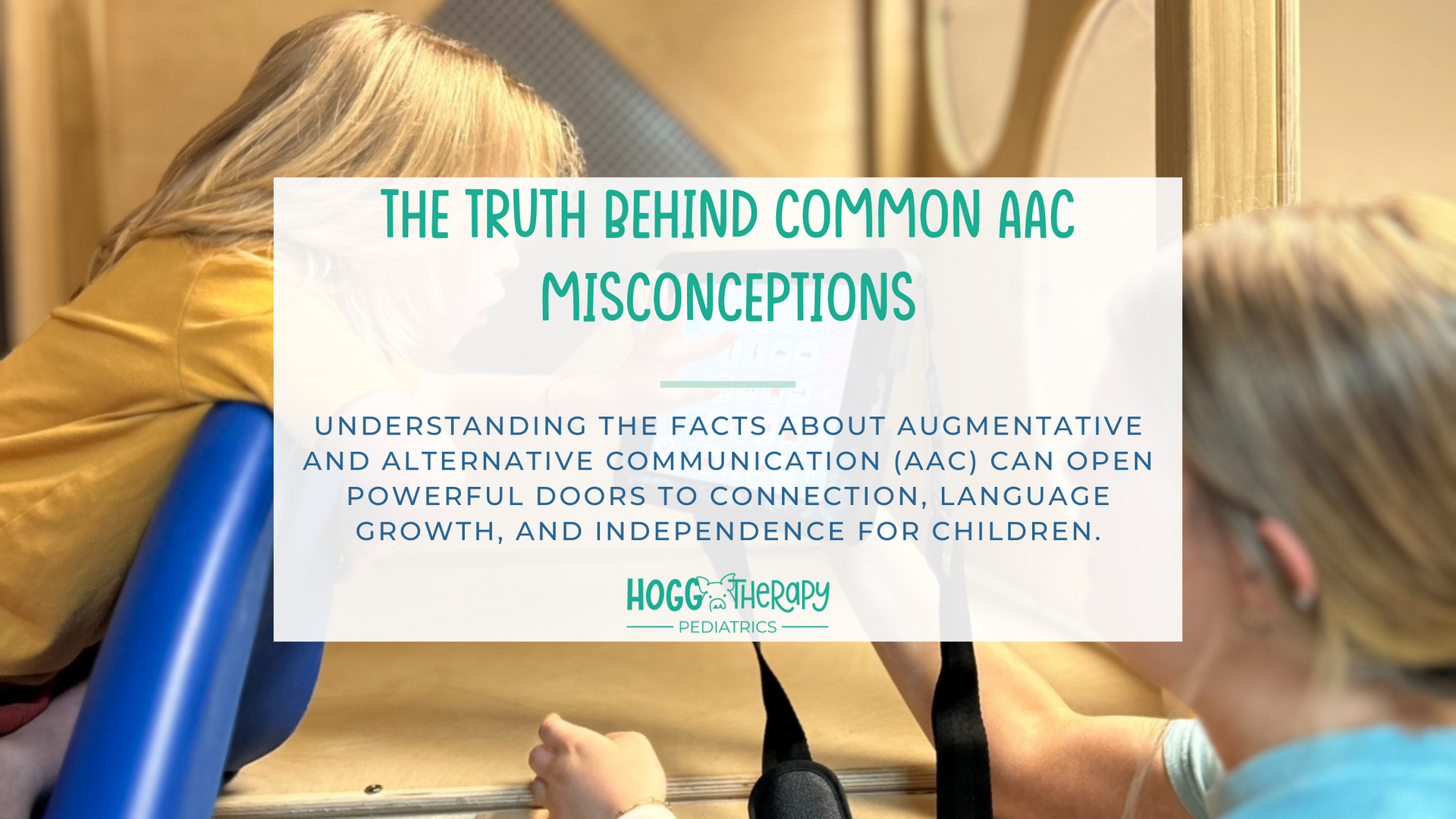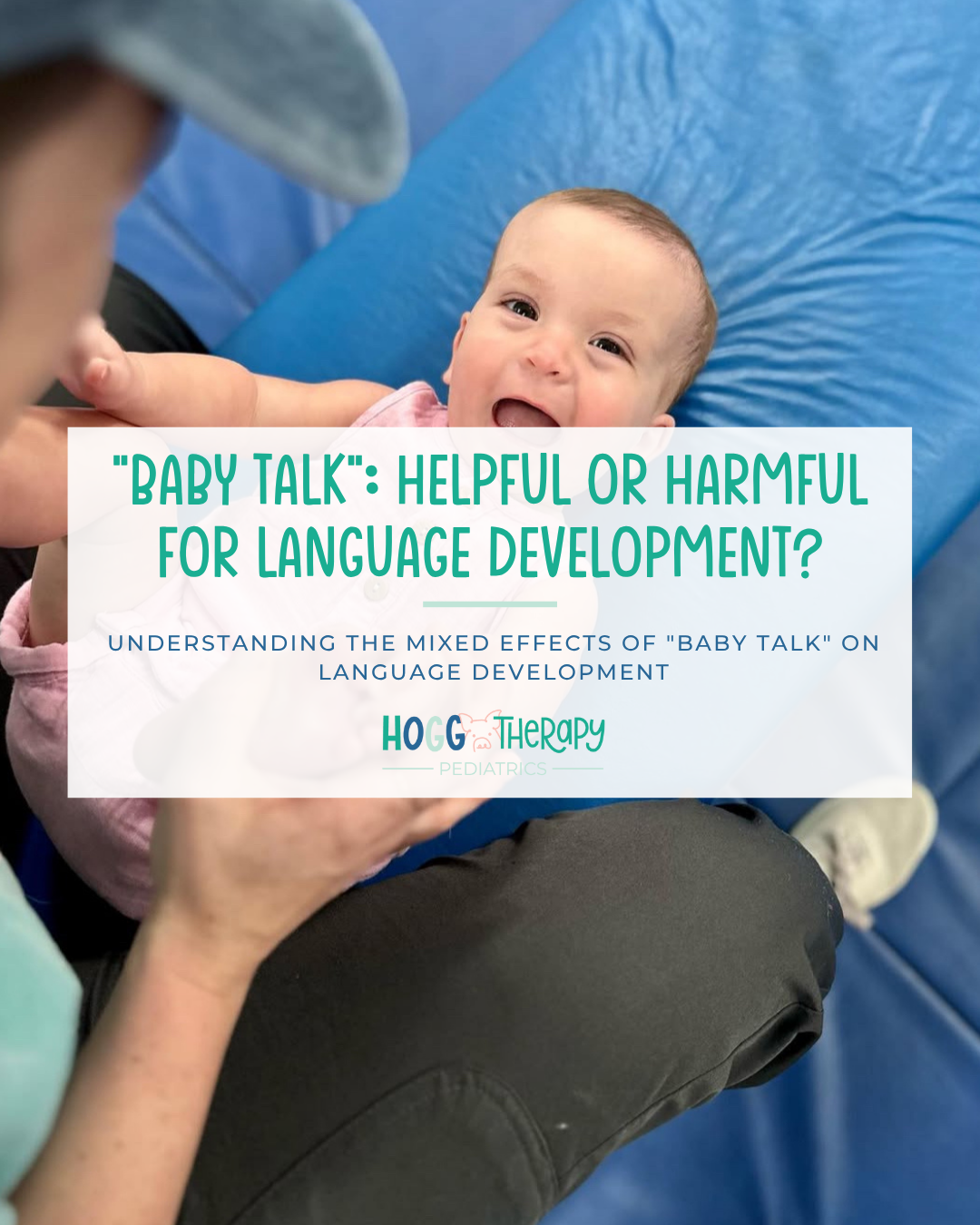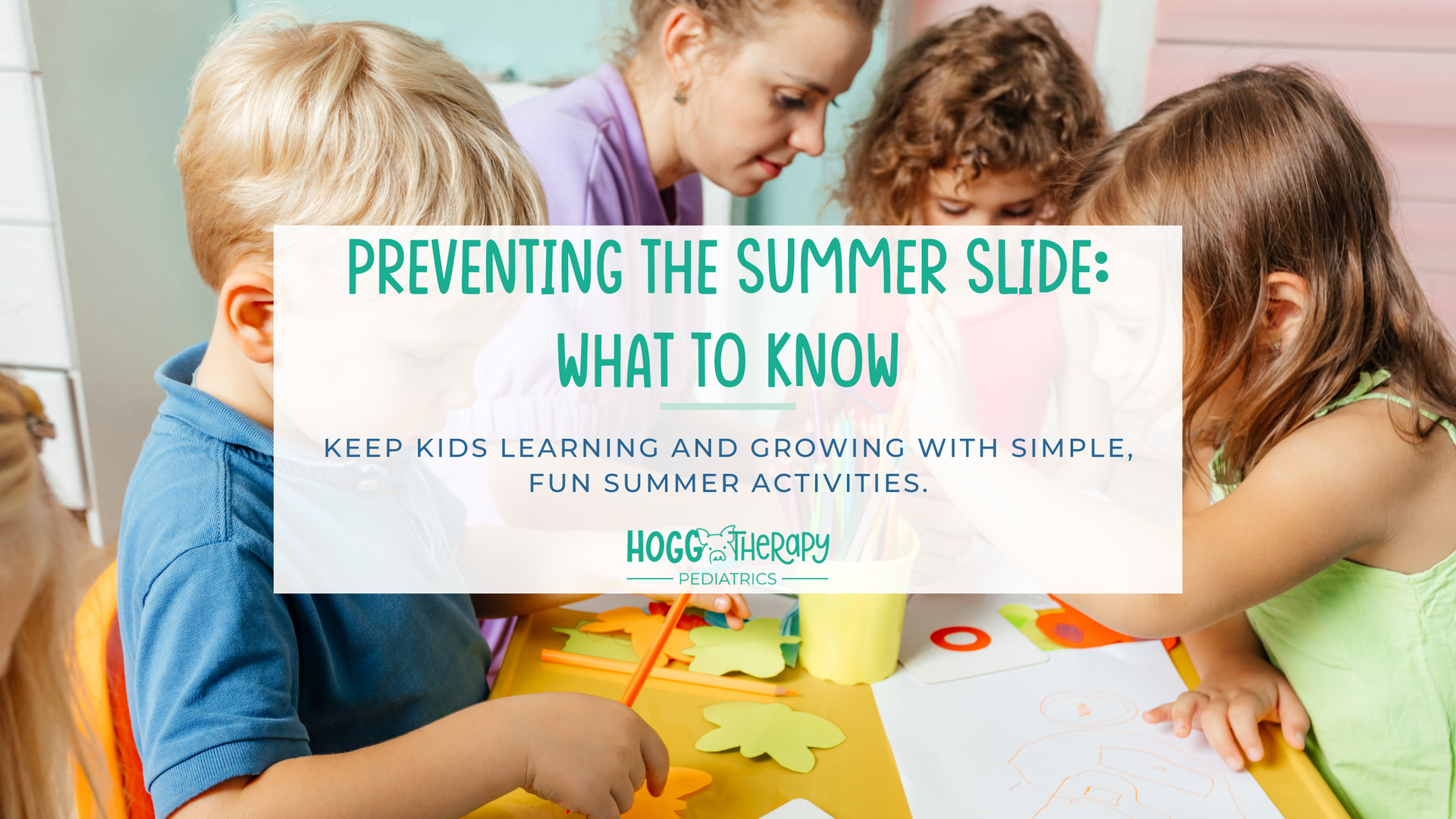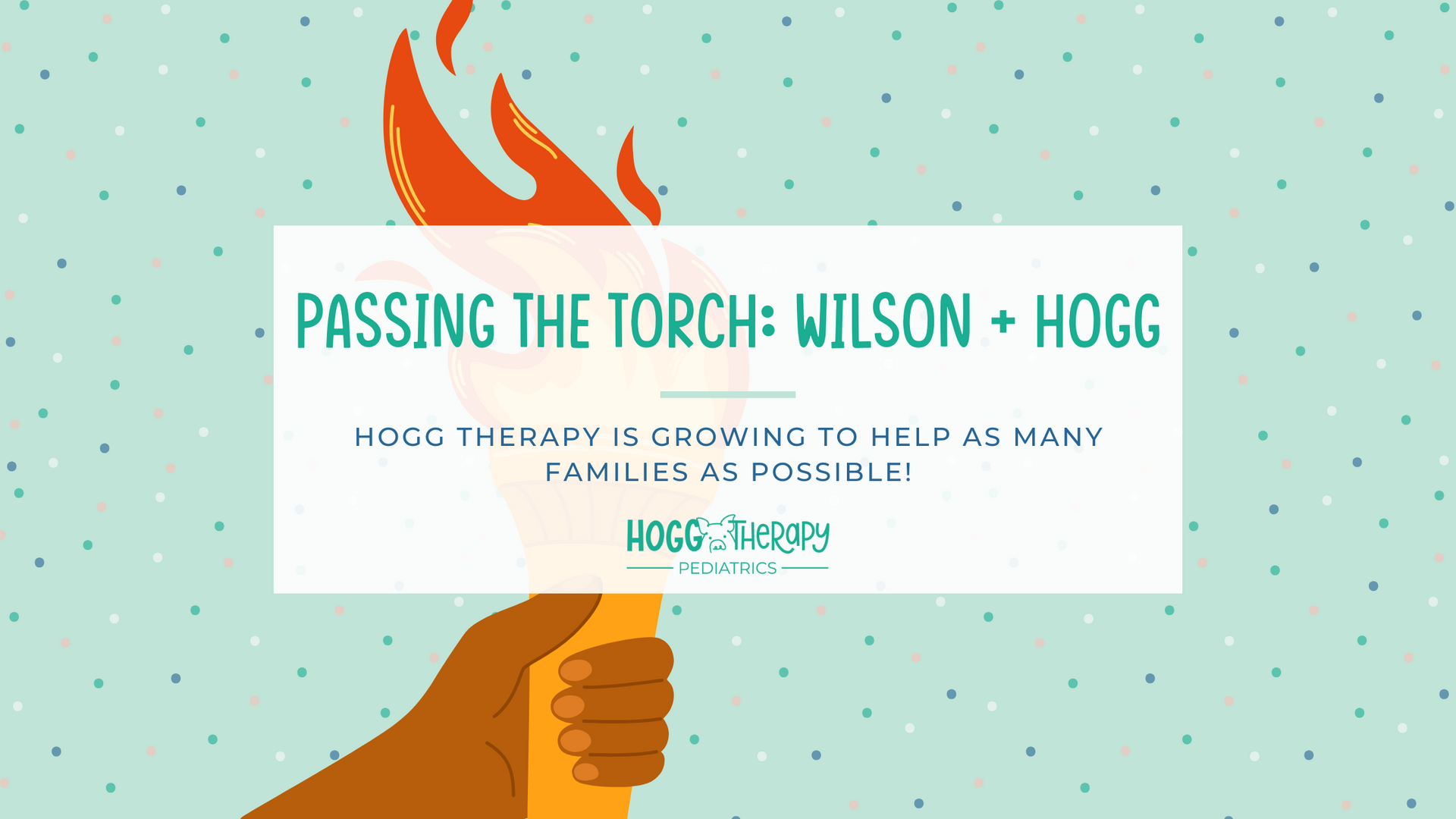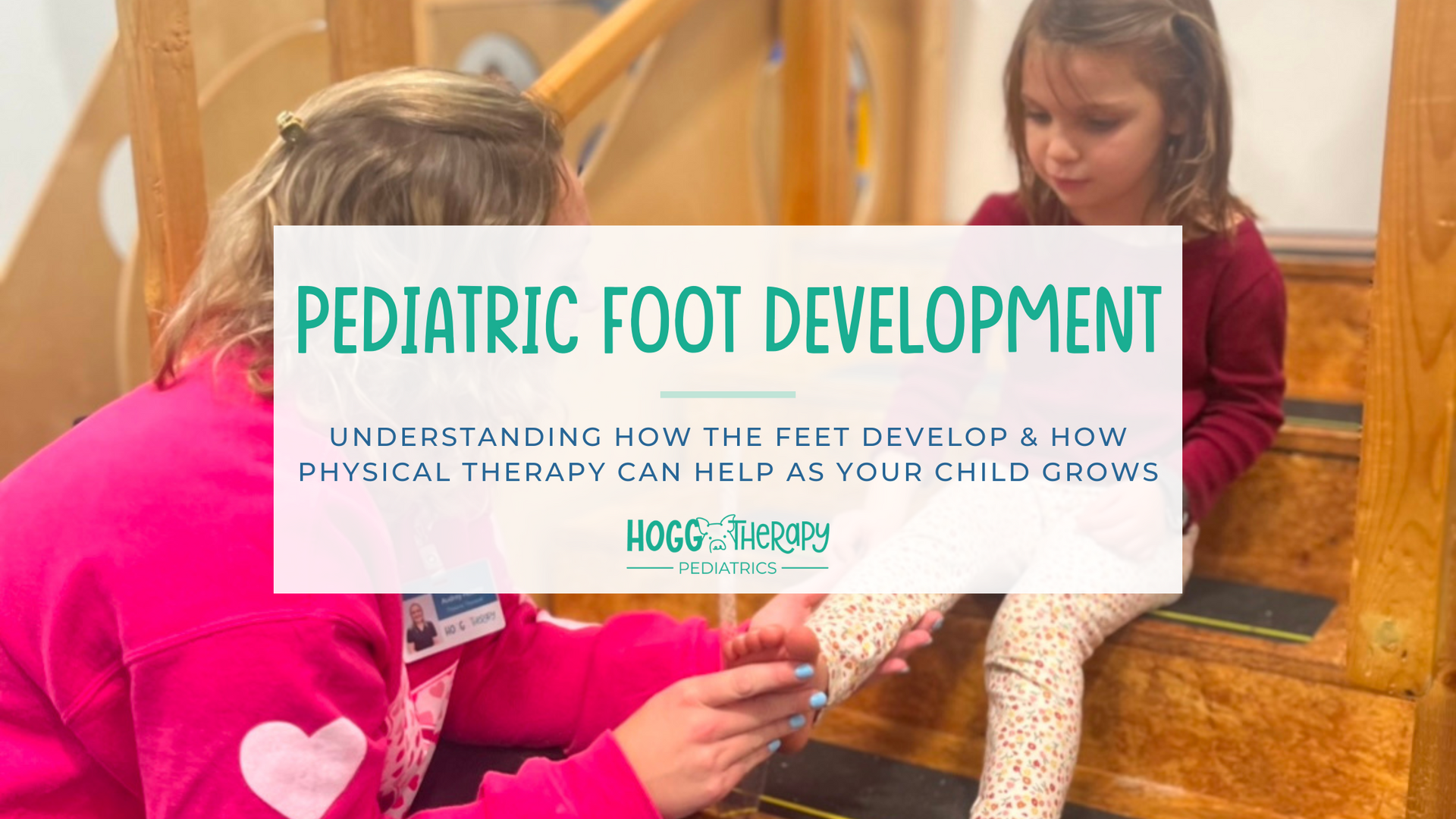Talking Toddlers: Tips to Help Your Toddler Combine Words
Teaching your toddler how to talk can seem like a daunting task. It's easy to be worried that your child is falling behind but keep in mind that every child is different. We all learn at different paces! However, if you do feel like your toddler needs some assistance with their vocabulary, try these tips to help them through the learning process.
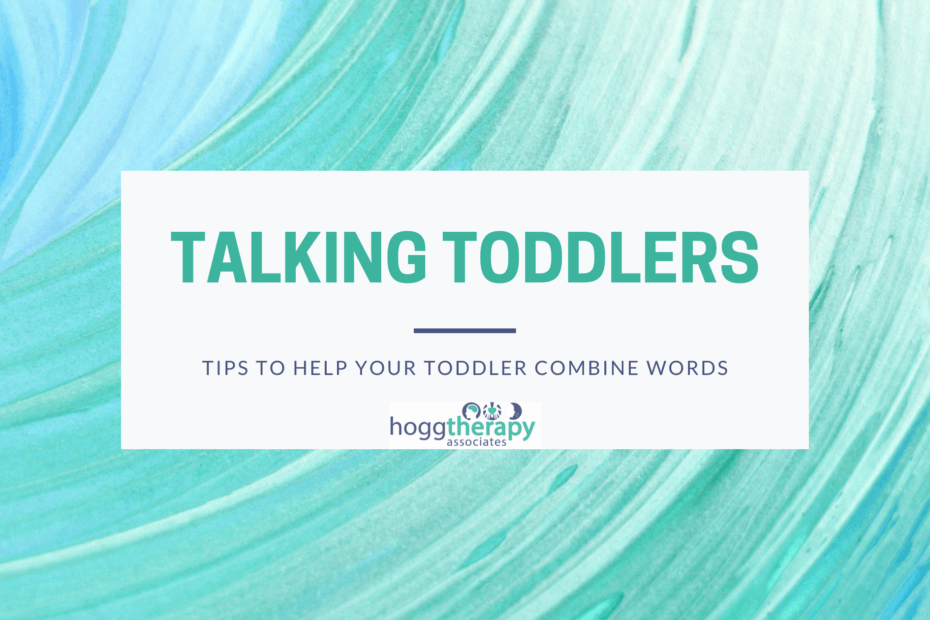
Morgan Barton, CCC-SLP
Teaching your toddler how to talk can seem like a daunting task. It's easy to be worried that your child is falling behind but keep in mind that every child is different. We all learn at different paces! However, if you do feel like your toddler needs some assistance with their vocabulary, try these tips to help them through the learning process.
Independent Vocabulary
Research shows us that children with typical language development usually have a spontaneous vocabulary of 35-50 words before they start to combine their words into phrases. Spontaneous vocabulary means they produce these words independently without hearing them from you first.
If your toddler’s independent vocabulary is lacking, it is important to increase their single word vocabulary before you work on using phrases. If you aren’t sure of how many words your child produces independently, it’s helpful to compile a list of them! Anytime you hear them produce a new word, provide them with praise and add the word to the list! If you find the vocabulary list has less than 35 words, work on increasing your child’s single word vocabulary.
Types of Words
Along with keeping track of the number of words your child produces, it’s also important to determine the types of words your child uses. Using words from different grammatical categories is necessary for your child to effectively express themselves when commenting and requesting. Toddlers with typical language skills will have early vocabularies that mostly consist of names of people and objects. These nouns are important, but toddlers need more than nouns in order to produce effective phrases. Along with nouns, toddlers also need the following:
- Requesting words (such as more, all done, please)
- Social words (such as hi, bye bye)
- Action words/verbs (such as go, open, push, stop, drink, eat)
- Preposition/location words (such as in, on, under, here, out, off)
- Early pronouns (such as me, I, my, you)
- Adjective and adverbs/describing words (such as hot, yucky, cold, pretty, big)
Help your child learn these different types of vocabulary by modeling them in your daily routines and encouraging them to imitate them.
Working on Phrases
Once your child’s single vocabulary increases you can begin working on using phrases. In order to imitate phrases, your child has to hear them! Frequently provide models of two-word phrases during your child’s daily routine. If they produce single words, provide an expansion of the word by adding a word to what they said.
For example if your child says “car” you can model “red car” or “push car.” Make sure to model words from different grammatical categories so your child doesn’t only hear nouns and verbs. The following are examples of different grammatical categories you can combine when modeling phrases:
- Adjective and Noun: “Cold water”
- Pronoun and Verb: “You run”
- Verb and Noun: “Smell flower”
- Pronoun and Noun: “Your bear”
As you can see, a lot of toddlers learn by example. The more your child hears you use vocabulary and phrases, the more they'll develop their own language skills. This is why reading is so important for children! It introduces them to a whole new world of vocabulary!
If you feel like your child is behind in their speech development, check out our FREE Interactive Screening Tool to see if your child is on track and identify potential areas for improvement.
For more tips and tricks, check out our other blog posts
here! You can also follow us on
Pinterest!



